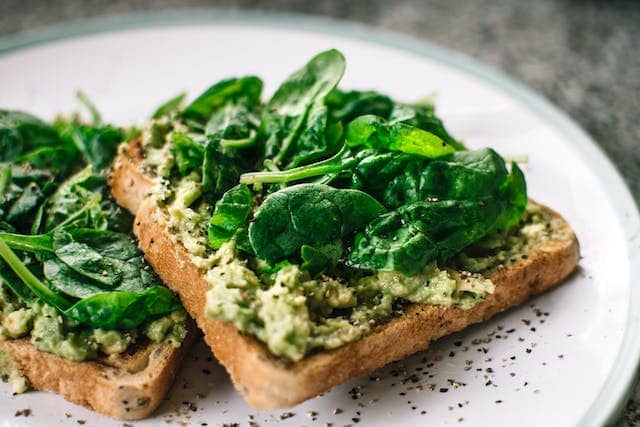Is there a difference between veganism vs vegetarianism?
A simple definition by the Oxford English Dictionary refers to veganism as the practice of eating neither meat nor other animal products such as fish, milk, and milk products. Veganism is a life choice which strictly avoids using or consuming any kind of animal product and services that are based on the exploitation of animals.
In contrast, vegetarianism is the strict practice of following a vegetarian diet.
Veganism is more of a strict lifestyle where one avoids using or consuming animal products, vegetarianism is the practice of abstaining from the consumption of meat and sometimes consuming any animal product.
While vegetarians often choose their diet because of its health benefits, vegans are more focused on following a strict diet with some believing that all animals on the planet should be protected.

What Is Veganism?
Veganism is the strict practice of eating neither meat nor other animal products such as milk, fish, eggs, and honey. It’s the practice of abstaining from consuming or using any animal product to protect animals across the world.
Those who follow the strict practice of veganism or philosophy are called vegans. In general, there are different categories of veganism.
Dietary vegans (also known as strict vegetarians) are those who follow a strict diet and do not consume meat, eggs, any dairy products or other animal-derived substances.
There is also the ethical vegan, which refers to those who avoid any animal product in their diet and also avoid using animals, animal-tested products, and animal products for any purpose.
Environmental veganism is another term that refers to the act of avoiding animal products. The idea is to avoid all animal products as the industrial farming of animals is unsustainable and harmful to the environment.
One of the benefits of following a strict vegan diet is that it tends to be higher in dietary fibre, vitamin C, folic acid, vitamin E, magnesium, and phytochemicals. Vegan diets also tend to be lower in dietary energy, cholesterol, saturated fat, vitamin D, calcium, omega-3 fatty acid, vitamin B12, and zinc.
Additionally, a poorly planned meal can lead to nutritional deficiencies due to the lack of all animal products.
Also Read: Concentrate vs Isolate: Difference and Comparison
What Is Vegetarianism?
Vegetarianism involves the practice of following a vegetarian diet. It’s the practice of not consuming meat or all by-products of animal slaughter.
Vegetarians avoid consuming meat and in some cases abstain from consuming any by-product of animals.
Vegetarianism as a practice may be accepted by many for different reasons. People sometimes refuse to consume any animal product as a sign of respect for sentient animal life.
Vegetarianism is also adopted for health-related reasons, environmental, political, and cultural reasons. Other people may decide to follow the practice of vegetarianism based on their personal preferences.
In vegetarianism, there are several variations of the vegetarian diet, which include the ovo-lacto vegetarian diet, the ovo-vegetarian diet, and the lacto-vegetarian diet.
An ovo-lacto vegetarian diet menu includes eggs and dairy products. Ovo-lacto vegetarians abstain from consuming or using animal flesh but eat eggs and all dairy products.
An ovo-vegetarian diet menu consists of eggs but no dairy products. Ovo-vegetarians enjoy eating eggs but will avoid all other dairy products.
A lacto-vegetarian diet menu includes dairy products but no eggs. So, lacto-vegetarians will consume any dairy products except animal flesh and eggs.

Veganism vs Vegetarianism: What Vegetarians and Vegans Eat?
A vegan and vegetarian diet includes healthy foods such as fruits and vegetables, nuts, grains, beans, and pulses.
Pasta, rice and potatoes are also on the menu of foods for vegetarians and vegans.
Also Read: FUE vs FUT: Difference and Comparison
Veganism vs Vegetarianism: Key Differences between Veganism and Vegetarianism
The difference between veganism and vegetarianism is that the former is a strict practice of eating neither meat nor other animal products such as milk, fish, eggs, and honey, while the latter involves the practice of following a vegetarian diet.
In veganism, there are different categories of the practice.
Dietary vegans (also known as strict vegetarians) are those who follow a strict diet and do not consume meat, eggs, any dairy products or other animal-derived substances.
There is also the ethical vegan, which refers to those who avoid any animal product in their diet and also avoid using animals, animal-tested products, and animal products for any purpose.
Environmental veganism is another term that refers to the act of avoiding animal products. The idea is to avoid all animal products as the industrial farming of animals is unsustainable and harmful to the environment.
Vegetarianism is a practice often adopted by many for health-related reasons, environmental, political, and cultural reasons. Other people may decide to follow the practice of vegetarianism based on their personal preferences.
In vegetarianism, there are several variations of the vegetarian diet, which include the ovo-lacto vegetarian diet, the ovo-vegetarian diet, and the lacto-vegetarian diet.
Veganism vs Vegetarianism: Which is more Healthier
Since veganism and vegetarianism involve abstaining from consuming animal products, their health benefits are similar.
It’s really difficult to choose which diet is healthier than the other since both diets have their advantages and disadvantages.
For instance, vegans abstain from consuming any animal by-product. However, lacto-vegetarians consume dairy products enriched with calcium, vitamin D, and phosphorous.
Vegans may lack these nutrients but avoiding dairy and eggs helps maintain their cholesterol level.
According to an article published on MedicalNewsToday.com, vegans are also likely to suffer from omega-3 fatty acid deficiency, specifically in EPA (Eicosapentaenoic acid) and DHA (Docosahexaenoic acid).
DHA (Docosahexaenoic acid) is an important omega-3 fatty acid that is essential for brain function. It also helps to avoid memory difficulty and brain fog.
While vegans may lack EPA and DHA, vegetarians obtain these omega-3 fatty acids from eggs and seafood.
Also Read: Family Medicine vs Internal Medicine: Difference and Comparison
Veganism vs Vegetarianism: Diseases and Deficiencies
Unhealthy lifestyles are mainly because of choosing unhealthy diets, excessive intake of alcohol, exposure to tobacco and physical inactivity. This is the major reason why many people today suffer from high blood pressure.
Unhealthy diets also lead to increased serum glucose, obesity, lipids, and overweight.
In the last few decades, many people have chosen to become vegetarians to live a healthier lifestyle. Medical statistics show that circulatory and cerebrovascular diseases, ischemic heart diseases, type 2 diabetes and all cancer incidences are lower in vegetarians than in omnivores.
Major health benefits of following a strict vegan diet is that it tends to be higher in dietary fibre, vitamin C, folic acid, vitamin E, magnesium, and phytochemicals. Vegan diets also tend to be lower in dietary energy, cholesterol, saturated fat, vitamin D, calcium, omega-3 fatty acids, vitamin B12, and zinc.
Also Read: Disorder vs Disease: Difference and Comparison
Veganism vs Vegetarianism: Which is better for Weight Loss?
In general, vegans tend to have a lower BMI (body mass index) compared to vegetarians and omnivores. Since vegans abstain from consuming animal products, it explains why they have a lower BMI than vegetarians.
A medical observation conducted in 2018 shows that people on a vegan diet tend to lose more weight than vegetarians.
About 70 overweight adults were selected by researchers to participate in a 16-week weight loss diet plan. The participants will either have to follow a low-fat vegan diet or continue with theirs.
After four months, those in the vegan group lost more fats, especially in their abdomen compared to those in the other group.
So, following a vegan diet guarantees more weight loss than any other personal diet.
Conclusion
Veganism and vegetarianism both have their advantages and disadvantages. While vegans may lack EPA and DHA, vegetarians obtain these omega-3 fatty acids from eggs and seafood.
One of the benefits of following a strict vegan diet is that it tends to be higher in dietary fibre, vitamin C, folic acid, vitamin E, magnesium, and phytochemicals.
Recommendations
- Sign vs Symptom: Difference and Comparison
- Orthopedic vs Orthodontist: Difference and Comparison
- Cavity vs Tooth Decay: Difference and Comparison
- Cavity vs Stain: Difference and Comparison
- Genotype vs Phenotype: Differences and Comparison
References
- Wikipedia: Veganism
- Britannica: Veganism
- A review A Petti, B Palmieri, M Vadalà, C Laurino – Progress in Nutrition, 2017: Vegetarianism and veganism: not only benefits but also gaps.
- NHSInform: Vegetarian and vegan diets

Leave a Reply